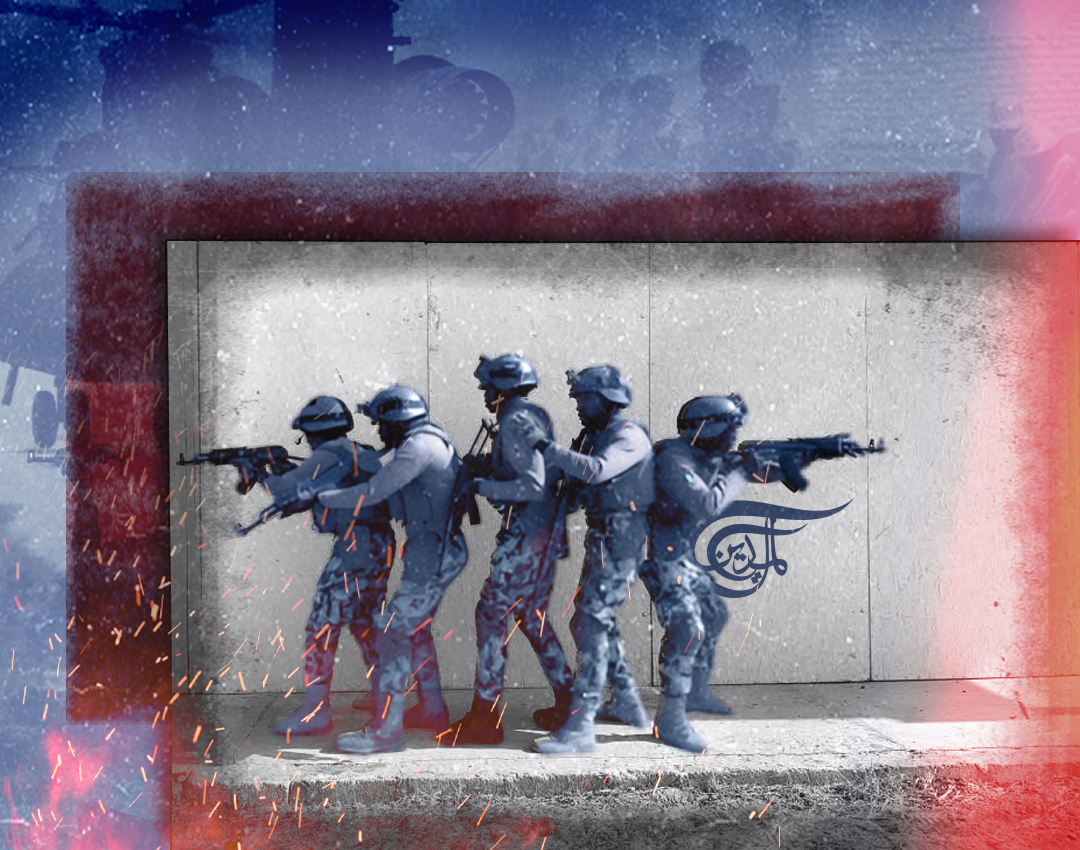Exercise Flintlock: US military training in Africa backfires
The coup in Niger demonstrates that for all Flintlock’s success in dislodging troublesome governments, the operation is replete with a high - and perhaps constantly growing - risk of blowback.
-

a 2017 Journal of Peace Research study found Washington’s foreign military training efforts roughly doubled the risk of military coups in recipient states
On July 28th, members of Niger’s military forcibly seized power, with presidential guard chief General Abdourahmane Tchiani declaring himself the country’s new leader. In response, US officials expressed “unflagging support” for ousted president Mohamed Bazoum, while Brussels summarily suspended all security cooperation with and financial support to Niamey.
In a statement delivered via Nigerien state TV shortly after Bazoum was detained, nine high-ranking army figures explained that the country’s “defense and security forces…decided to put an end to the regime…due to the deteriorating security situation and bad governance.”
Concerns have since resounded throughout the West over the prospect of Niger’s new military government pivoting towards Russia, in the manner of its neighbors Burkina Faso, and Mali. Such fears were surely exacerbated when Yevgeny Prigozhin, leader of Russia’s highly controversial Wagner private military company, described the coup as a triumph:
“What happened in Niger is nothing other than the struggle of the people of Niger with their colonisers…who are trying to foist their rules of life on them and their conditions and keep them in the state that Africa was in hundreds of years ago.”
The prospect of an anti-Western complexion on the part of Niger’s newfangled junta is surely all the more bitter for the US, given that individuals within the military administration, which dubs itself the “National Council for the Safeguarding of the Country”, have received elite military training courtesy of Washington in recent years.
As The Intercept reports, key coup figure Brigadier General Moussa Salaou Barmou, head of Niamey’s Special Operations Forces, spoke proudly in 2021 of his unit’s “very long relationship” with the US, and how “being able to work together in this capacity is very good for Niger.”
In June, Barmou personally met with Lieutenant General Jonathan Braga, US Army Special Operations Command chief, at Air Base 201. This site, in the Nigerian city of Agadez, serves as the nucleus of Washington’s drone operations in West Africa. The pair reportedly discussed “anti-terrorism policy and tactics throughout the region.”
Barmou was trained at Fort Benning, Georgia, and Washington’s National Defense University. Strikingly, US embassy cables from 2008, released by WikiLeaks, indicate he received this instruction under the auspices of “Exercise Flintlock”. Launched in 2005, ostensibly to provide counter-terror support to West African states, since its inauguration Flintlock-trained soldiers have been central figures in the majority of coups across West Africa.
‘Very Worrisome’
Two years after Flintlock’s birth, US Africa Command (AFRICOM) was inaugurated, embedding Washington within the cores of armed forces in 53 countries throughout the continent, where they remain today. It is surely no coincidence that the rate and volume of coups in Africa expanded exponentially during the same period.
Take for instance December 2008, when Flintlock graduate Captain Moussa Dadis Camara seized power in Guinea. While he led the country for only 12 months, his rule was characterised by brutal violence, frequently of a sexual nature.
In September 2009, Camara dispatched Guinea’s presidential guard to suppress opposition protests. They opened fire upon, bayoneted and gang-raped attendees in broad daylight, killing at least 157 people and injuring around 1,200 more. According to contemporary witness accounts, some women were raped via gun barrels. Several victims were shot through their vaginas.
Three years later, Captain Amadou Sanogo, trained by the US on six separate occasions, led a coup in Mali. The upheaval emboldened an Islamist insurgency, leading to French military intervention in 2013. AFRICOM officials referred to Sanogo’s actions as “very worrisome for us”. Meanwhile, US General Carter Ham, Flintlock’s leader at the time, duly admitted to catastrophic failings:
“We were focusing our training almost exclusively on tactical or technical matters. We didn’t spend probably the requisite time focusing on values, ethics and a military ethos…When you put on the uniform of your nation, you accept the responsibility to defend and protect that nation, to abide by the legitimate civilian authority that has been established, to conduct yourselves according to the rule of law. We didn’t do that to the degree we needed to.”
In 2019, AFRICOM’s premier training event was conducted in Burkina Faso. Military Times, a typically unquestioning journal of record for current and former US military personnel, was prompted to ask whether this was a sensible move, given the country’s human rights record and security situation. The US ambassador merely said it was “important” to look at abuse allegations “in light of the environment in which the country is working”.
AFRICOM chief Major General Mark Hicks claimed training military partners in human rights law compliance was an “absolutely critical” element of the program. These entreaties must’ve been ignored by Colonel Assimi Goita, who graduated from a US military training course in 2016, and participated in a US-led training exercise three years later. In August 2020, he seized power in Mali. Photos of Goita being handed a certificate by trainers at a US-German security centre were duly purged from the web.
Appetite for Destruction
Africa’s history of coups over the past century is extensive. As such, some may be tempted to dismiss Flintlock’s significance in fomenting revolution across the continent. Yet, a 2017 Journal of Peace Research study found Washington’s foreign military training efforts roughly doubled the risk of military coups in recipient states.
Based on data from 189 countries between 1970 and 2009, two-thirds of successful coups during this period worldwide were found to have been executed by beneficiaries of US military training. Study authors attributed this phenomenon to training programs greatly increasing military power, in relation to “host” governments.
One needn’t be a cynic to suggest that the propensity of Flintlock graduates to overthrow the governments which they’re meant to serve isn’t a “bug”, but a dedicated, deliberate feature of the program. After all, Africa is an ever-increasingly central theatre in the new Cold War. The regional influence of former colonial powers, such as Britain and France, is rapidly waning as China’s precipitously grows, in turn threatening US hegemony.
It therefore makes perfect sense for the US to construct a continent-spanning regime change army, which can be depended upon to take action in the most violent manner imaginable at a moment’s notice, should a government fail to act as required by Washington. This appears to have been the case in Guinea in September 2021, when a group of elite soldiers assumed control, imprisoning then-President Alpha Condé, suspending the constitution, closing the country’s borders, and freeing dozens of political prisoners.
Guinea had not long prior signed a deal with Beijing, enhancing China’s access to the country’s vast natural resources, which include aluminium, bauxite, iron, and more. Notably, Lieutenant-Colonel Mamady Doumbouya, Conakry’s new leader, was keen to assure Western investors at the time that their interests locally wouldn’t be adversely affected by his government’s policies.
Yet, the coup in Niger demonstrates that for all Flintlock’s success in dislodging troublesome governments, the operation is replete with a high - and perhaps constantly growing - risk of blowback. US-trained military officers have been involved in at least six coups in Burkina Faso and Mali since 2012. Governments in both countries are now engaged in dedicated efforts to purge their lands of any and all Western influence, and public sympathy for Western enemy states such as Russia is high and rising.
Should Niger go the same way, Paris alone will lose its access to the country’s uranium, which by some estimates powers one in three lightbulbs across France. And the punitive reactions of the EU and US to the suggests the Western world more widely views the “National Council for the Safeguarding of the Country” as a dire threat to its interests not just in Niger, but the entire region.

 Kit Klarenberg
Kit Klarenberg
 8 Min Read
8 Min Read











